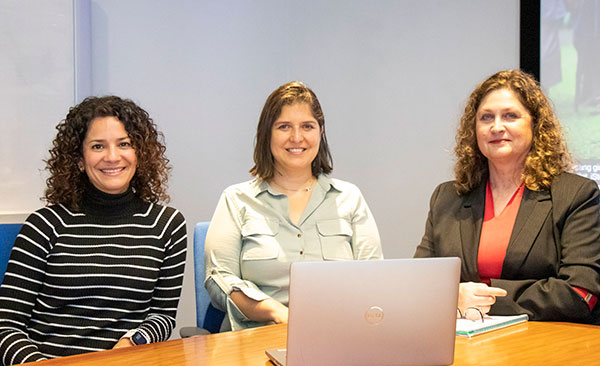A new information hub on mine closure planning and post-mining transition for local communities and other stakeholders has been launched by a team of researchers and staff from The University of Queensland’s Sustainable Minerals Institute.

Led by Centre for Social Responsibility in Mining (CSRM) Research Fellow Dr Sandy Worden, the Mine Closure Hub – information for communities unpacks the social aspects of mine closure using non-technical language, videos, podcasts and infographics.
“Mine Closure Hub was created to help support the active participation of communities in mine closure planning and to bring attention to the social dimensions of closure,” Dr Worden said.
“Around 1000 mines worldwide are facing closure within the next 10 years, according to global data provider S&P Global – that’s one in six mines. These closures represent significant socio-economic as well as environmental risks for affected towns and regions.
“Impacted people have the right to be involved in decision-making around matters that affect them, but the complexity of mine closure, jargonistic terminology and long planning lead times can make it challenging for them to share their knowledge, aspirations and concerns with mining proponents.
“Mine Closure Hub explains how communities can participate in closure planning and mini case studies showcase what’s possible when they are involved. The hub also provides information about the closure process, associated challenges, post-mining land uses, regional dynamics, plus a comprehensive glossary of closure terms and links to other resources.
“A key focus when we developed the hub was to incorporate the voices of community members impacted by mining and mine closure, and we thank them for their valuable contribution.”
Social aspects of mine closure relate to the socio-economic, political, cultural, human health and well-being and institutional impacts that emerge when mining activities end; how impacts are addressed, and the planning and management processes needed for that assessment; and long-term sustainability beyond the life of active operations.
“For land-connected peoples, including Indigenous peoples, wellbeing costs often link with the environment and include impacts to identity, cultural and spiritual connections, and their inherent obligations to look after Country. Other costs are associated with communities’ dependence on mines for their economic base, infrastructure and service provision,” Dr Worden said.
The Mine Closure Hub was developed through the Social Aspects of Mine Closure Research Consortium, a three-year program of research that was supported by seven industry partners: Anglo American, BHP, MMG, Newcrest, Newmont, OceanaGold and Rio Tinto.
This resource is publicly available.
Media: Dr Sandy Worden, s.worden@uq.edu.au; Sasha Ackfun, s.ackfun@uq.edu.au, +61 (0)447 812 081.



